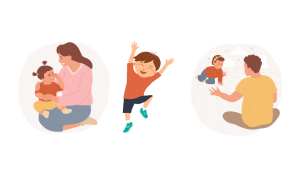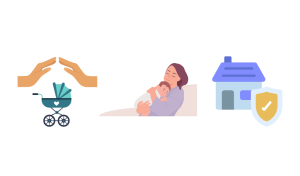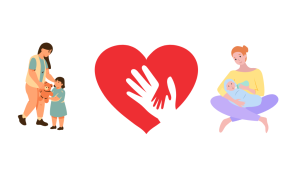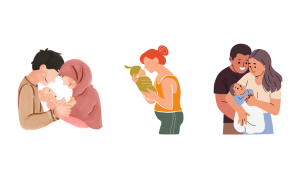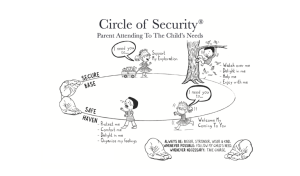Our evidence based programs are currently only offered to those engaged in our integrated family services
The Society is recognised as a specialist family services in the First 1000 Days and early years. Offering a range of evidence based parenting programs and developing evidence informed practices within the specialisation, our approach aims to build adult capabilities in meeting the social and emotional needs of babies, infants and young children.
Our approach draws on evidence based programs as well as drawing on and developing evidence informed practices upholding the Society’s values underpinned by the belief of Every Person has Infinite Worth.
Evidence based programs are drawn from research that is tested, proves to be effective in the design for purpose and can then be translated into practice delivered through community based settings.
Evidence informed practice means using evidence from practice to design, implement and improve program interventions and how they can be delivered. In the work of the Society’s specialisation in wrap around, this draws on the evidence of 10 principles of wrap around to then better understand what emerges from practices, including reviewing, reflection, testing, analysing and translating the most current research and practice into evidence that has application to our purpose.
For further information regarding our programs, email us at: info@caroline.org.au
Programs

Bringing Up Great Kids
Bringing Up Great Kids – The Early Years
The ‘Bringing Up Great Kids in the Early Years’ Parenting Program is a group program developed by the Australian Childhood Foundation for a range of parents of children 0 – 6 years, including those who might be considered ‘vulnerable’ or ‘at risk’.
The program uses ideas of mindfulness and reflection to support parents to review and enhance their patterns of communication with their children, to promote more respectful interactions and encourage the development of children’s positive self-identity.
Bringing Up Great Kids – The First 1000 Days
The first 1,000 days of life – the time spanning roughly between conception and a child’s second birthday – is a unique period of opportunity when the foundations of optimum health, growth, and neurodevelopment across the lifespan are established.
The parenting style experienced in the first 1000 days is critical to the way a child can experience attachment and has an impact on the health and wellbeing outcomes for the child in later life. Research on the importance of the first 1000 days identifies a warm, responsive, mindful, reflective and supportive parenting style as providing the best outcome of children’s overall development while the children are young and impacts positively on their later life skills and health.
The Bringing Up Great Kids in the first 1000 days program has been designed to nurture parents as they embark on their journey supporting their children.
Bringing Up Great Kids – Family Violence
This is a mindful and reflective program that provides support to women to reclaim their confidence with parenting.
Often, women and children who have experienced family violence can become disconnected from family and community as a result. It offers parents the opportunity to find connection, solidarity and a sense of safety by connecting with facilitators and other participants who have similar experiences.
“Thank you for providing a very powerful parenting course“
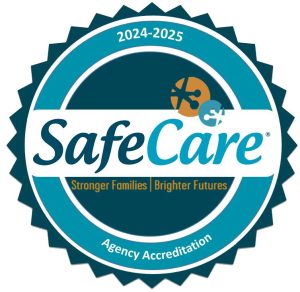
SafeCare®
The Caroline Chisholm Society is an accredited SafeCare® agency, reaching the highest standards in implementation.
The SafeCare® program is an evidence-based, in-home parenting support initiative designed to help caregivers of children aged 0–5. It focuses on three core areas:
- Parent-Child/Infant Interaction – promoting positive and nurturing relationships.
- Home Safety – reducing risks of unintentional injuries in the home.
- Child Health – improving caregivers’ ability to recognise and respond to childhood illnesses and injuries.
The program is typically delivered through weekly home visits, where our trained professionals provide structured modules and coaching to help families build skills and confidence in parenting.
The Caroline Chisholm Society became an accredited SafeCare agency in 2021. We use SafeCare model as an evidenced based program that is part of their broader mission to support vulnerable families and build their parenting confidence.
By integrating SafeCare into their services, the Society aims to:
- Strengthen parenting skills.
- Reduce the need for child protection interventions.
- Support family preservation and child safety.
- Empower mothers and caregivers through structured, supportive home visits.
For further information, contact us on 9361 7000 or email info@caroline.org.au
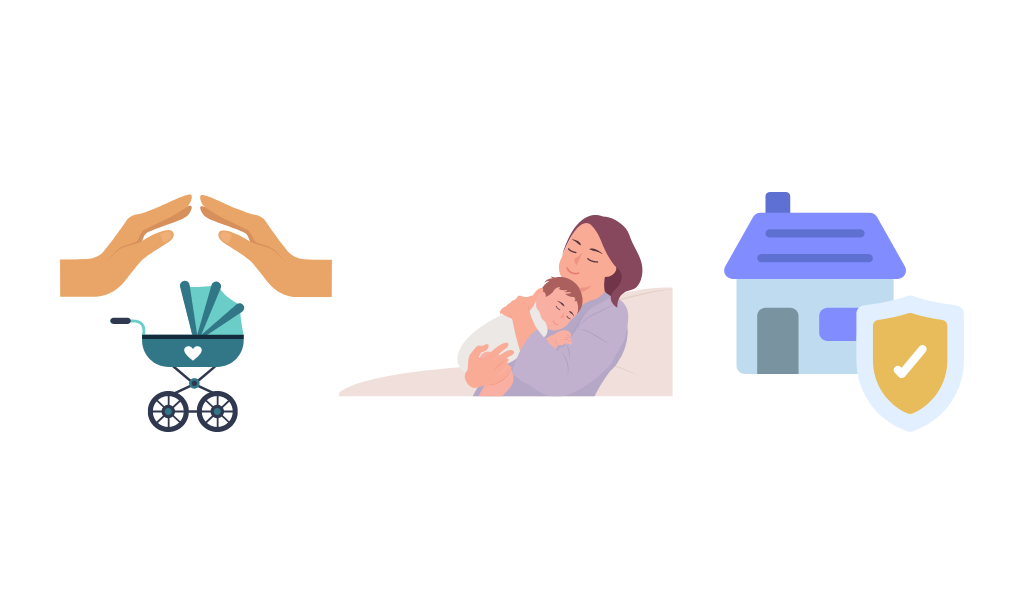
Bringing Baby Home
The Bringing Baby Home (BBH) workshop is an evidence based and hands on practical program, dedicated to improving the quality of life for babies and children by strengthening their families.
Developed by renowned relationship and parenting experts, Drs. John and Julie Gottman, the BBH program is perfect for those who are:
- Planning to have a baby
- Expecting a baby
- Already parenting an infant or toddler (age 0-3)
Learning objectives:
| Strengthen your friendship | Better understand child development |
| Increase intimacy and affection | Create co-parenting strategies with your partner |
| Work through conflict with greater ease | Improve the way you and your partner communicate, connect and compromise |
| Maintain relationship satisfaction | Recognise signs of postpartum mood disorders and gain awareness of treatment options |
| Reduce hostility | Create positive parent-child relationships |
| Ensure quality involvement for both parents | Reduce the incidence of severity of postpartum mood disorders |
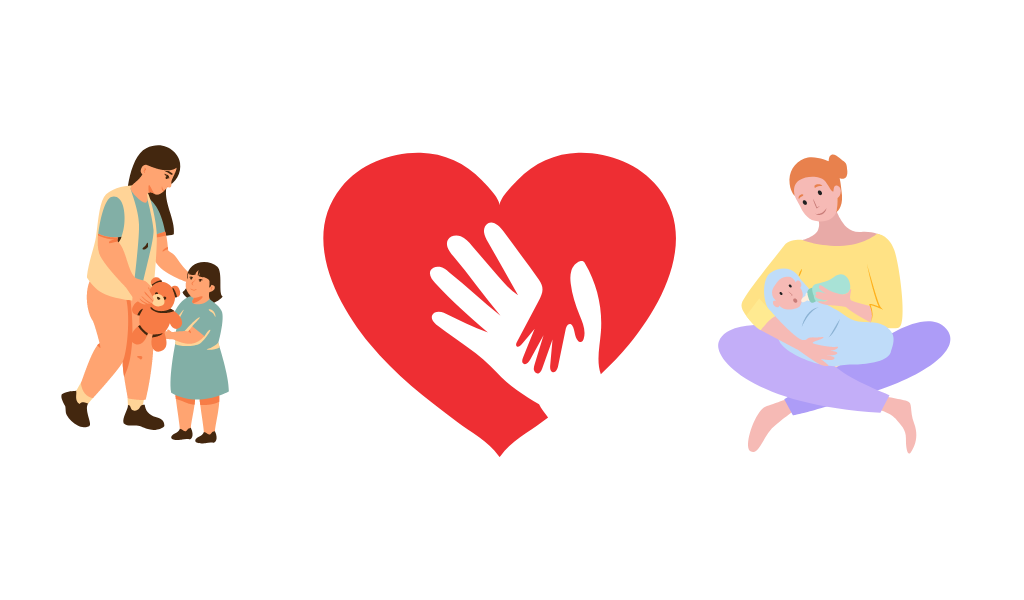
Keys to Caregiving
Keys to Caregiving is a research-based learning program from the Parent Child Relationship Program Barnard Centre University of Washington. The program provides important information on newborn, infant and child behaviour which builds competence and confidence in practitioners and their work with families.
How does Keys to Caregiving benefit the parent child interaction?
- It increases both practitioner and parent/caregiver’s knowledge of the infant and child’s amazing abilities.
- It builds confidence and competence in parent/caregiver’s care of their infants.
- It creates space and opportunity for moments of mutual joy and connection.
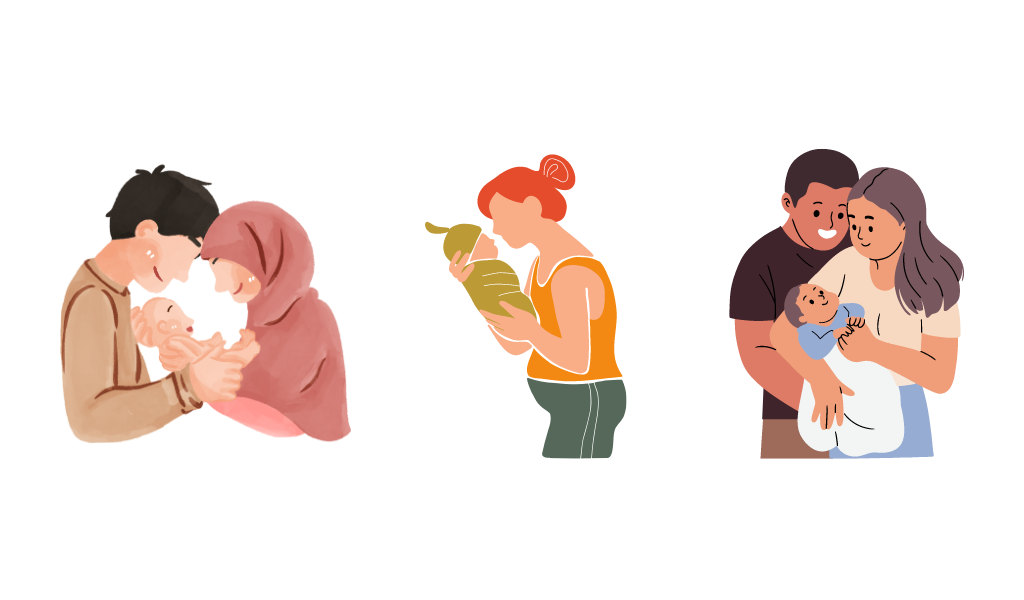
Promoting First Relationships
Promoting First Relationships (PFR) is the result of the work of Dr Jean Kelly (Founding Director), who first became interested in the work of John Bowlby and attachment theory in her research area of the parent-child relationship. Based with the University of Washington’s Parent-Child Relationship Programs at the Barnard Centre, the PFR is designed to support parents to experience joy and confidence in their relationships with their young children, ages birth to 5 years.
Learning Objectives:
- Building a healthy and secure relationship with your child.
- Understanding your child’s difficult behaviours and looking at the feelings and needs behind this behaviour.
- Understanding how to support your child’s social and emotional health.
- Discussing strategies for coping with difficult times as a parent.
- Understanding ways you can help your child through emotionally difficult experiences.
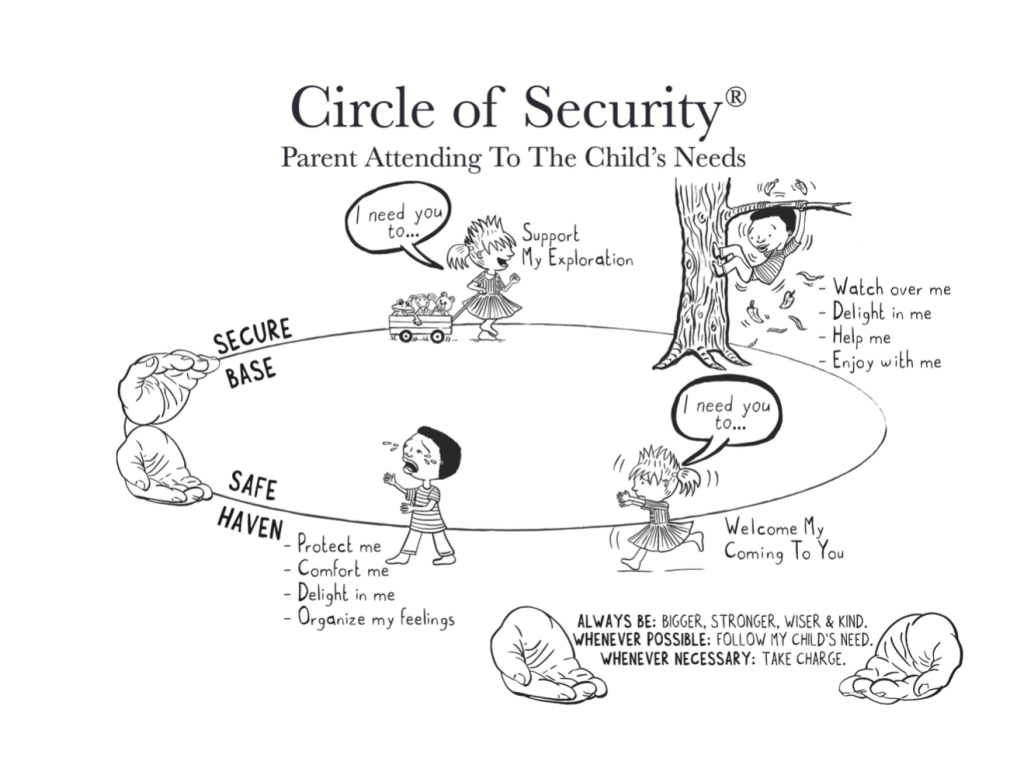
Circle of Security
“Intimate attachments to other human beings are the hub around which a person’s life revolves, not only as an infant or a toddler or a school child but throughout adolescence and years of maturity as well, and on into old age …” – (John Bowlby Attachment and Loss Vol. 1)
Circle of Security Program (COSP) draws together the work of Glen Cooper, Kent Hoffman and Bert Powell and to help caregivers connect with the children in their lives.
At times, all parents feel lost or without a clue about what our child might need from us. The Circle of Security Parenting Program is based on decades of research about how secure parent-child relationships can be supported and strengthened. The Circle of Security figure is a central visual used as part of interventions for caregivers, all of which are focused on helping caregivers reflect upon children’s attachment needs in order to promote secure attachment with a child.
“I found talking about my examples and watching the videos helped me understand how to apply the circle of security with my kids. It’s changed how I view parenting. I liked how the program was easy to follow and I didn’t have to do a lot of pre reading, but I can refer back to the hand out when I can or need to”.
Learning objectives:
- Understand your child’s emotional world by learning to read the emotional needs.
- Support your child’s ability to successfully manage emotions.
- Enhance the development of your child’s self esteem.
- Honour your innate wisdom and desire for your child to be secure.
This program can be done by any caregiver or parent who would like to strengthen the relationship with their child. We deliver this program for families with children aged 0-5 years old.
The course can be delivered face to face or online, depending on preference.
If you would like to register your interest, please email us on info@caroline.org.au

